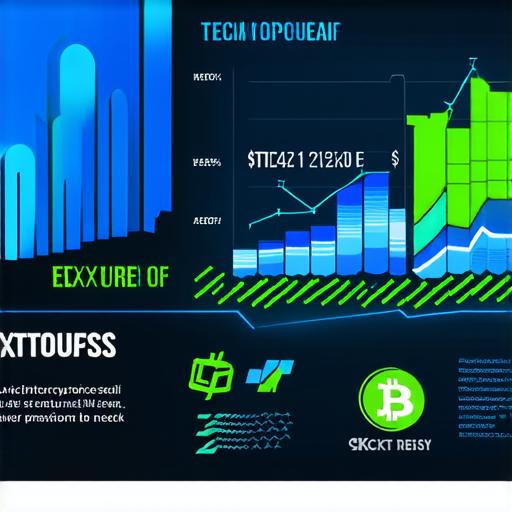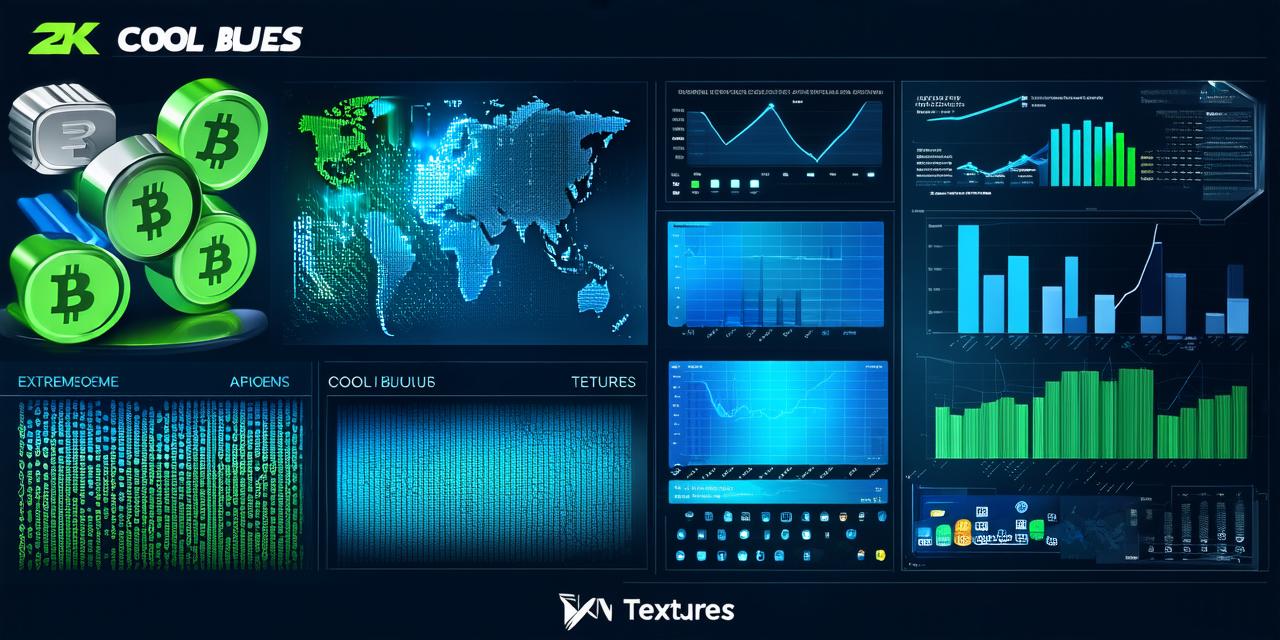Cryptocurrencies have taken the world by storm since their introduction, and they’ve quickly become one of the most exciting investments to watch. One of the most important questions that newcomers to the cryptocurrency world ask is what sets altcoins apart from Bitcoin.
What are Altcoins?
Altcoins, also known as alternative coins, are digital or virtual currencies that operate on blockchain technology just like Bitcoin. However, they differ from Bitcoin in terms of their underlying technology, transaction speed, and the purpose they serve.
Why do Altcoins Matter?
Altcoins matter because they offer several advantages over Bitcoin. Here are some of the key reasons why altcoins are gaining popularity:
- Faster Transactions: Unlike Bitcoin, which takes up to 10 minutes to process transactions, most altcoins can process transactions within seconds or a few minutes.
- Lower Fees: Bitcoin’s transaction fees can be quite high, especially during peak usage periods. Altcoins, on the other hand, have much lower transaction fees, making them more accessible to people who don’t want to spend a lot of money on transactions.
- Diversification: Altcoins offer an opportunity to diversify your investment portfolio. By investing in different altcoins, you can spread out the risk and potentially reap higher returns than if you only invested in Bitcoin.
- New Use Cases: Altcoins are being developed for a wide range of use cases, such as voting systems, supply chain management, and decentralized finance (DeFi). This means that there is potential for altcoins to revolutionize many industries and create new opportunities for investment.
Examples of Altcoins
There are hundreds of altcoins in circulation, each with its own unique features and benefits. Here are some examples of popular altcoins:
- Ethereum: Ethereum is the second-largest cryptocurrency by market capitalization and is used for building decentralized applications (dApps) on blockchain technology. It has a fast transaction speed, low fees, and a strong developer community.
- Ripple: Ripple is a payment protocol that allows for fast and low-cost cross-border payments. It’s used by banks and payment providers to facilitate global transactions quickly and efficiently.
- Bitcoin Cash: Bitcoin Cash is a fork of Bitcoin that aims to increase transaction speed and capacity. It has a larger block size limit, which allows for more transactions per second.
- Litecoin: Litecoin is a fork of Bitcoin that was designed specifically for faster transactions. It uses the Scrypt mining algorithm and has a smaller block size limit than Bitcoin.
- Stellar: Stellar is a payment protocol that enables fast, low-cost cross-border payments. It’s used by financial institutions and businesses to facilitate global payments quickly and efficiently.

Case Studies of Altcoins in Action
Altcoins are being used in various industries to create new opportunities and solve real-world problems. Here are some examples of how altcoins are being used:
- Supply Chain Management: Altcoins, such as Bitcoin and Ethereum, are being used to increase transparency and security in supply chain management. By using blockchain technology, companies can track products from production to delivery and ensure that they are authentic and safe for consumption.
- Voting Systems: Altcoins are being developed for use in voting systems to increase transparency, security, and accessibility. For example, the West Virginia Secretary of State’s office has partnered with Voatz, a startup that uses blockchain technology to create a secure and verifiable voting system.
- Decentralized Finance (DeFi): Altcoins are being used to build decentralized finance applications on blockchain technology. These apps allow users to lend and borrow money, trade assets, and earn interest without the need for intermediaries like banks.
Expert Opinions
Here’s what some experts have to say about altcoins:
“Altcoins offer a lot of potential for innovation and disruption in various industries,” says Andreas Antonopolos, a cryptocurrency expert and author of several books on the subject. “However, it’s important to do your research and invest wisely, as not all altcoins are created equal.”
“Altcoins have the potential to revolutionize many industries, especially in areas like supply chain management and voting systems,” says John Wolpert, CEO of Elemential Labs, a company that uses blockchain technology for supply chain management. “But it’s important to remember that adoption and mainstream acceptance take time, so investors should be patient and invest with a long-term perspective.”
FAQs
1. What sets altcoins apart from Bitcoin?
Altcoins differ from Bitcoin in terms of their underlying technology, transaction speed, and the purpose they serve.
2. Why do altcoins matter?
Altcoins matter because they offer several advantages over Bitcoin, including faster transactions, lower fees, diversification, and new use cases.
3. What are some examples of popular altcoins?
Some examples of popular altcoins include Ethereum, Ripple, Bitcoin Cash, Litecoin, and Stellar.
4. How are altcoins being used in various industries?
Altcoins are being used in supply chain management, voting systems, and decentralized finance (DeFi) to increase transparency, security, and efficiency.
5. What do experts say about altcoins?
Experts believe that altcoins offer a lot of potential for innovation and disruption in various industries but advise investors to do their research and invest wisely.
Conclusion
Altcoins are an important part of the cryptocurrency world, offering several advantages over Bitcoin and providing new opportunities for investment and innovation. By understanding the concept of altcoins and their applications, you can make informed decisions about which ones to invest in and how to use them in your business or personal life. As the world of cryptocurrencies continues to evolve
